- Home
- Stephen Hunter
Point of Impact Page 2
Point of Impact Read online
Page 2
On the screen, the four faces vanished; and then Bob’s young face suddenly appeared.
“He’s twenty-six, on his third tour of Vietnam,” said Dr. Dobbler. “It’s June tenth, 1972. He’s just officially killed his thirty-ninth and fortieth men, though unofficially the total is far higher.”
The slide showed a raw young face, lean and sullen. The eyes were slits, the skin tight, the mouth a hyphen; there was something somehow Southern in the bone structure. He looked mean, too, and very competent, without a lick of humor, with no patience for outsiders, with a willingness to fight anyone who pushed him too far. A boonie hat was pressed back on his head, revealing a thatch of crewcut. He wore rumpled utilities with globe and anchor inscribed on the pocket, and trapped proudly in the joint of his left arm so that it lay along the length of his forearm and was cupped in his hand at the trigger guard and comb was a black, heavy-barreled rifle with a long telescopic sight.
Dobbler looked at the boy on the screen: it was the same expressionless face you saw on the white-trash tough guys, the human tattoo museums and born-to-kill bikers and assault-with-intent pros who did their time in the joint as easily as a vacation, whereas he himself had nearly died from it. That was the first shock of a cultured man: that in such savagery, some people not only survived but actually thrived.
The doctor continued.
“Please note, it’s not Robert Lee Swagger; his father named him Bob Lee—he gets quite angry when people call him Robert. And he likes to be called ‘Bob,’ not Bob Lee. He’s very proud of his father, although he must only vaguely remember him. Earl Swagger won the Congressional Medal of Honor on Iwo Jima in World War Two and was an Arkansas state trooper, killed in the line of duty in 1955, when Bob was nine. The boy’s mother returned from Little Rock to the family farm outside Blue Eye, in Polk County, in western Arkansas, where she and her mother and Bob managed a threadbare existence.
“Bob is, in many ways, a child of the embarrassing Second Amendment, and he fits the profile of other great American gun heroes—both Alvin York and Audie Murphy come to mind. He grew up orphaned early, in a border state, on a hardscrabble farm, where his hunting was not only natural and expected but necessary. He quickly became a proficient hunter with a single-shot .22 rifle, and graduated, in his teens, to a lever-action deer gun and finally a Winchester in .30 caliber. He was, from the very first time his father allowed him to shoot, an exceedingly gifted rifleman.
“In 1964, having graduated from high school where he got—this is perhaps not as amazing as it seems—excellent grades, Bob turned down a college scholarship and instead joined the United States Marines, just in time for the Vietnam War.
“He did a tour in 1966 as an infantry lance corporal and was wounded twice; he did one in 1968, during Tet, as a recon patrol leader, doing a lot of dangerous work up near the DMZ. In 1971, at Camp Perry, Ohio, Bob Lee was the national thousand-yard center-fire rifle champion. It got him noticed. He returned to Vietnam in late 1971 to the Scout-Sniper platoon, Headquarters Company, Twenty-sixth Regiment, First Marine Division, operating outside Da Nang.”
He clicked a button.
The screen displayed a business card with a neat block of print under the silhouette of a telescopic rifle.
It said,
WE DEAL IN LEAD, FRIEND.
—SCOUT-SNIPER PLATOON,
HEADQUARTERS COMPANY,
FIRST MARINES.
“The line was stolen from Steve McQueen in The Magnificent Seven. It was his platoon’s calling card, part of the First Marine Psywar operations in its region, left in prominent places in the area where Bob and his men were operating, usually in the left hand of corpses dropped by a single bullet in the chest. Scout-Sniper of the First was the most proficient unit of professional killers this country had ever sponsored, at least on an individual basis. In the six years it operated, it is said to have killed over one thousand seven hundred fifty enemy soldiers. Itself, it only counted forty-six men in its ranks over those years. A sergeant named Carl Hitchcock, with ninety-three confirmed kills, was highest; Bob, five years later, was second, with his eighty-seven; but there were several other snipers in the sixties and more than a dozen in the fifties.
“As for Bob, I’ll only sketch the high points. He evidently did a few jobs for the CIA’s Operation Phoenix, liquidating hardcore infrastructure people, Vietcong tax collectors and regional chieftains and the like. So he is not unfamiliar with the operations of professional intelligence agencies. But his more common targets were rank-and-file North Vietnamese regulars operating in the area. They even had a huge reward out for Bob, over fifty thousand piasters. But most astonishingly, he and his best friend and spotter, a lance corporal named Donny Fenn, once ambushed a North Vietnamese battalion which was rushing toward an isolated Special Forces camp. The weather was bad, and the jungle was triple canopy, so air support or evacuation was impossible. It was out of range of artillery. A thousand men, heading toward twelve on a hilltop. But Bob and his spotter were the only other friendly forces in the area. They tracked the North Vietnamese, and began taking out officers one at a time over a forty-eight-hour stretch in the An Loc Valley. The battalion never reached the Green Berets, and Swagger and his spotter made it out three days later. He killed over thirty men in that two-day adventure.”
Even Payne, who tried never to be impressed, had to suck in some air.
“Cocksucker can shoot a little,” he said.
The projector clicked.
A man swaddled in bandages lay in a hospital bed, leg locked in traction, face bleak, eyes hugely hollow.
“Bob Lee Swagger’s war came to an end on eleven December 1972. He was sliding over a crest line on his way out when he was hit in the hip by a rifle bullet fired from over a thousand yards. His friend and spotter Donny Fenn slid down the embankment to get him. The next bullet hit Donny in the chest, blew through to his spine. Bob lay out there all morning with his dead friend in his arms, until they could call in artillery on the suspected sniper position. It ended his war and it ended his career in the Marine Corps. He was invalided out of the service in 1975, after three years’ painful rehabilitation. It ended his competitive shooting, too. Competitive shooting is an extremely formalized sport, involving positions of great physical discomfort, while wrapped tightly in leather shooting garments for maximum body control. With his hip wired together, Bob was never able to achieve those formal positions with the same degree of intensity.
“You could say, I suppose, that Bob Lee Swagger gave everything to his country, and in return, it took everything from him. His heroism was of a sort that makes many Americans uneasy. He wasn’t an inspiring leader, he didn’t save lives, he didn’t rise in the chain of command. He was simply and explicitly an extraordinary killer. Almost certainly for that reason, he never got the medals and the acclaim he deserved.
“What followed, one can almost predict. He was married, but the marriage fell apart. A career in real estate sales outside Camp Lejeune collapsed, he tried to go back to school but lost interest. He was into and out of alcoholism clinics in the mid to late seventies. In the eighties, he seems to have come to some sort of provisional peace with himself, and with his country, if only by withdrawing. And one can only imagine what the excessive patriotic hubris of the Persian Gulf victory has done to increase his isolation and his bitterness. He lives in a trailer, alone, in the Ouachita Mountains, a few miles outside of Blue Eye, subsisting on his Marine disability pay and what’s left of the thirty thousand dollars his pal, an old country lawyer named Sam Vincent, won for him in a lawsuit against Mercenary magazine in 1986. Alone, that is, except for his guns, of which he has dozens. And which he shoots every day, as if they are his only friends.
“You can see, of course, his ready fund of resentment, his sense of isolation. All these things make him vulnerable and malleable,” said the doctor. “He’s the man we’ve been taught to hate. He’s the solitary American gun nut.”
Bob knew, as the gun jolted
into his shoulder and the sight picture disappeared in a blur of recoil, that the perfect shot he’d been building toward all these hours was his. It was as if the image at the second when the lockwork of the Remington bolt had delivered striker to primer were engraved in his mind and he had fractions of a second to analyze at a speed that has no place in real time; yes, the rifle was held true; yes, the scope, zeroed onto two hundred yards with a group size of less than two inches, was placed exactly where he wanted it; yes, the trigger pull was smooth, unhurried; yes, he was surprised when it broke; yes, his position was solid and no, no last second twitch, no flicker of doubt or lack of self-belief, had betrayed him.
Yes, he’d hit.
The animal, stricken, bucked ferociously in its sudden shroud of red mist. Its great antlered head spasmed back as its front legs collapsed under it and it crashed to the ground.
Without unshouldering, Bob flicked the bolt, tossing a piece of spent brass, ramming home a new .308, and reacquired the target. But he saw immediately that no follow-up was necessary. He snapped the safety on, lowered the rifle and watched Tim thrash, his bull neck beating against the sleet and dust. The animal could not accept that it had been hit or that its legs no longer functioned or that numbness was spreading through it.
Go on, fight it, boy, thought Bob. The more you fight it, the faster it gets you.
At last the man stood. His legs ached and he suddenly noticed how cold it was. He flexed his fingers to make certain they still worked. His hand flew to the ache in his hip, then denied it. He shivered; under the down vest, he was bathed in sweat. Numbly, he went over and retrieved the shell casing he’d just ejected.
After shooting, Bob felt nothing. He felt even more nothing than he did in shooting. He looked at the animal in the undergrowth a hundred-odd yards away. No sense of triumph filled him, no elation.
Yeah, well, I can still shoot a little, he thought. Not so old as I thought.
Creakily, he walked down the hill to the clearing and over to the fallen stag. The sleet pelted him, stinging his face. The whole world seemed gray and wet. He squinted, shivered, drew the parka tighter about himself.
The animal wheezed. Its head still beat against the ground. Its eye was opened desperately and it craned back to see Bob. He thought he could see fear glinting out of that great black eyeball, fear and rage and betrayal, all the huge things that something that’s just been shot feels.
The animal’s tongue hung from its half-opened mouth as the deeper paralysis overcame all its systems. The buck was a brute all right, and its legs were as scarred as a football player’s knees. Bob could see a pucker of dead tissue high on the flank where Sam Vincent’s sloppy .45-70 had flashed through years earlier. But the horns, though now slightly asymmetrical, were beautiful. Tim wore an enormous rack, twelve points of staghorn, in a convoluted density of random growth, like a crown of thorns atop the narrow beauty of his head. He was all trophy, maybe a record for the Boone and Crockett book.
His flanks still heaved, showing the struts of his ribs. His living warmth and its musty, dense animal smell rose through the plunging sleet. You could almost warm your fingers off of him. His left back leg kicked ineffectually, as even now he fought it. Bob looked at the bullet strike. He could see the impact just where he’d willed it to be and just where the Remington had sent it to go: a crimson stain above the shoulder, immediately above the spine.
Figure I hit you just about dead perfect, partner, Bob thought.
Tim snorted piteously, thrashing again. It irked Bob that he thrashed and splattered the mud up on his tawny hide, spotting it. The animal could not take its eye off Bob as Bob bent and stroked it.
Bob touched the throat, then pulled out his knife, an old Randall Survivor, murderously sharp.
Be over in a second, partner, he thought, bending toward Tim.
“Wait a minute,” said Payne.
Dobbler swallowed. In the dark Payne looked over at him with a pathological glare. Everybody was afraid of Payne except Shreck.
“Colonel, I been around a lot of guys like that in the service, and so have you,” he said to Shreck. “Proud to say, I served with them in my twenty-two years in the Special Forces. Now, when it’s killing time, there ain’t no better boy than your white country Southerner. Those boys can shoot, and they got stones the size of cars. But they got an attitude problem, too. They got this thing about their honor. Cross one of them boys, and they make it their business to even the score, and I ain’t shitting you. I’ve seen it happen in service too fuckin’ many times to talk about it.”
“Go on, Payne,” said the colonel.
“They’re true men, and when they get something in their heads, they won’t let go of it. I saw enough of it in Vietnam. I’m just telling you, cross this man and I’m guaranfuckingteeing you the worst kind of trouble.”
“I think,” said the doctor in a loud voice, “that Mr. Payne has made an excellent point. It would not do at all to underestimate Bob Lee Swagger. And he is especially right when he notes Bob’s ‘honor.’ But surely you can also see that it’s his honor that makes him so potentially valuable to us. He is in fact quite a bit like the precision rifle with which he earned his nickname—extremely dangerous if used sloppily, yet absolutely perfect if used well. He, after all, knows more about what we are interested in than nearly any man alive. He is simply the best sniper in the Western world.”
He shot a glance at the silent figure of Shreck, and received in reply only more stony silence.
“But there is a problem. Bob the Nailer, as perfect as he seems, does present one terrible, terrible problem. He has a deep flaw.”
Bob leaned over Tim, gripping the Randall in his left hand.
Tim snorted one more time.
Bob spun the gnarled haft of the weapon in his hand, bringing the serrated upper teeth to bear. With the saw blade, he hacked at the base of the left antler, not in the veiny, velvety knob but an inch or two higher, where the horn was stone dead. In a second the teeth cut into and through the horn and Bob yanked as a half of the heavy crown fell into his hand. He tossed it away into the undergrowth, bent, and just as forcefully sawed the second antler off.
Then he backed off to avoid getting trampled.
The beast lurched halfway to its feet.
Bob gave it a hard swat on the rump.
“Go on, boy. Git! Git! Git outta here, you old sonovabitch!”
Tim bucked up, snorted once, shook his unchained head with a shiver of the purest delight and, his nostrils spurting a double plume of rancid, smoky breath, he seemed to gather even more strength and bounded off crazily, bending aside saplings and flinging shards of ice as he plunged into the forest.
In a second he was gone.
I own you, you sonovabitch, Bob thought, watching as the stag disappeared.
He turned and started the long trek home.
“His flaw,” said the doctor, “is that he will not kill anymore. He still hunts. He goes to great lengths and puts himself through extraordinary ordeals to fire at trophy animals. But he hits them with his own extremely light bullets machined of Delrin plastic at a hundred yards’ range. If he hits the creatures right and he always does—he aims for the shoulder above the spine—he can literally stun them off their feet for five or six minutes. There’s a small compartment of red aluminum dust for weight in each bullet, and as the bullet smashes against the flank of the beast, it smears the animal with a red stain, which the rain quickly washes off. Extraordinary. Then he saws their antlers off. So that no hunter will shoot them for a trophy. He hates trophy hunting. After all, he’s been a trophy.”
Colonel Shreck spoke.
“All right, then. It’s Swagger. But we’ll have to find a trophy this asshole will hunt,” he said.
CHAPTER TWO
It was funny how a rifle will sometimes go sour on you. Bob’s fine old pre-’64 Winchester Model 70 in .270 had been a minute-of-angle gun for five years, shooting within an inch at a hundred yards, or two at t
wo hundred or three at three, holding ever true to that abstraction of rifle accuracy. But it had suddenly opened up. On today’s target, the bullet punctures formed a raggedy constellation over three times an inch.
Yet, baffled as he was, a certain part of Bob was tickled. It was so damned interesting. It was one more thing to find out about, another trip deep into the maze that kept him, or so he believed, sane.
Take this damn 70. He could spend a week on it. He’d take it apart, down to its finest screw and spring, and go over each tiny bit of it, looking for burrs in the metal, for pieces of grit in the works, for signs of wear or fatigue. He’d steam clean the trigger mechanism. With his fingers, he’d probe every square centimeter of the stock, feeling for knots, splinters, warps, anything that could lay just the softest finger of pressure against the barrel to nudge the rifle out of true.
And when that was done, if it didn’t shoot right, he’d just do it again.
His tiny shop was out back of the trailer, a shed of corrugated tin, dark and oily. Off to one side stood a reloading bench, with a single-stage Rock Chucker for his rifle loads and a Dillon for his .45’s, and stacked along the wall, neatly and fastidiously, were his many dies. The back wall had filing cabinets for his notebooks and his targets, and bins for used brass that he’d yet to reload. The smell of Shooter’s Choice bore solvent hung in the air like a vapor. A single light illuminated the darkness, and if he wasn’t shooting or sleeping he was reading Guns & Ammo or Shooting Times or The American Rifleman or Accuracy Shooting or The Shotgun News or Rifle.
But on this afternoon as he contemplated the delinquent Model 70, he heard his dog Mike barking. Mike, a furious old half-beagle with a mangy coat and yellow eyes, prowled the fence Bob had built around his trailer; in exchange for table scraps and a daily romp through the hills, he’d chase any human thing away, except for the two or three that Bob allowed to call on him. But this day, Mike just kept howling for the longest damn time, and Bob knew that whoever had come by wasn’t about to leave.

 Point of Impact
Point of Impact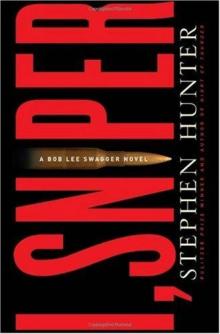 I, Sniper
I, Sniper Havana
Havana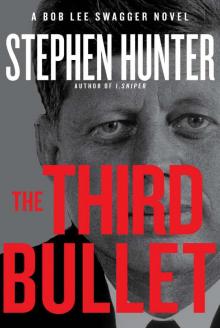 The Third Bullet
The Third Bullet Sniper's Honor: A Bob Lee Swagger Novel
Sniper's Honor: A Bob Lee Swagger Novel Dirty White Boys
Dirty White Boys The 47th Samurai
The 47th Samurai Hot Springs
Hot Springs G-Man
G-Man Black Light
Black Light Time to Hunt
Time to Hunt The Day Before Midnight
The Day Before Midnight A Bob Lee Swagger Boxed Set
A Bob Lee Swagger Boxed Set The Master Sniper
The Master Sniper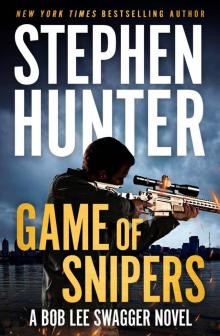 Game of Snipers
Game of Snipers Tapestry of Spies
Tapestry of Spies Citadel
Citadel The Second Saladin
The Second Saladin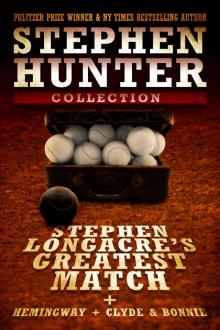 Stephen Longacre's Greatest Match
Stephen Longacre's Greatest Match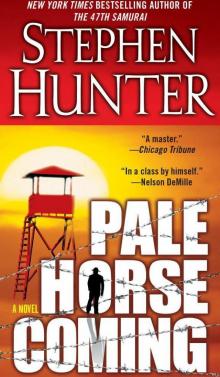 Pale Horse Coming
Pale Horse Coming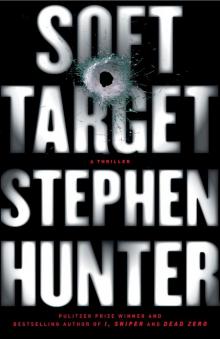 Soft Target
Soft Target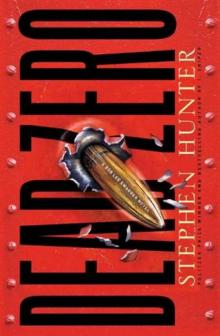 Dead Zero
Dead Zero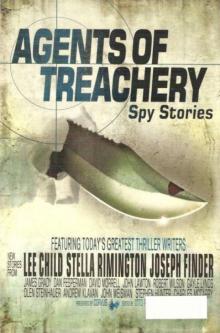 Casey at the Bat
Casey at the Bat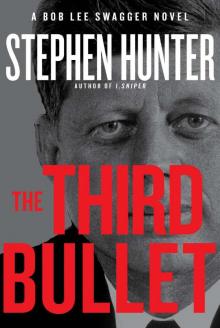 The Third Bullet bls-8
The Third Bullet bls-8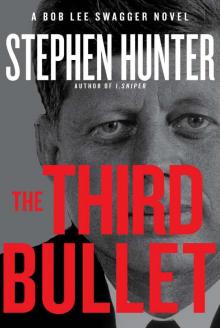 The Third Bullet: A Bob Lee Swagger Novel
The Third Bullet: A Bob Lee Swagger Novel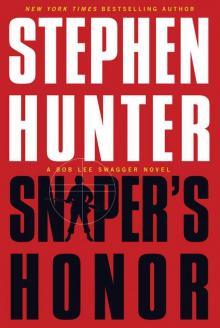 Sniper's Honor
Sniper's Honor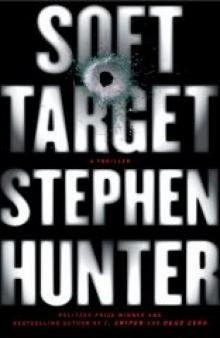 Soft target rc-1
Soft target rc-1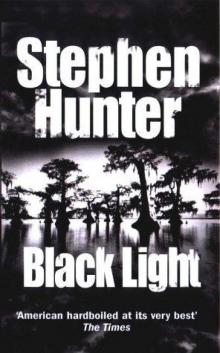 Black Light bls-2
Black Light bls-2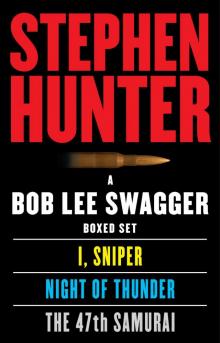 A Bob Lee Swagger eBook Boxed Set: I, Sniper, Night of Thunder, 47th Samurai
A Bob Lee Swagger eBook Boxed Set: I, Sniper, Night of Thunder, 47th Samurai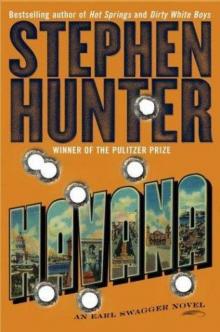 Havana es-3
Havana es-3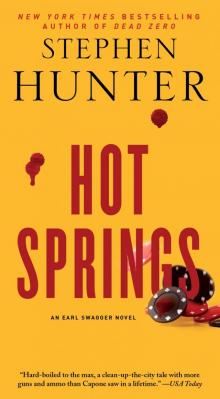 Hot Springs (Earl Swagger)
Hot Springs (Earl Swagger)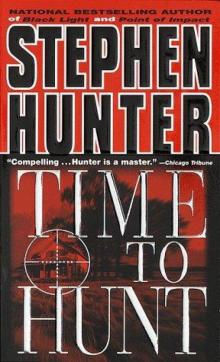 Time to Hunt bls-1
Time to Hunt bls-1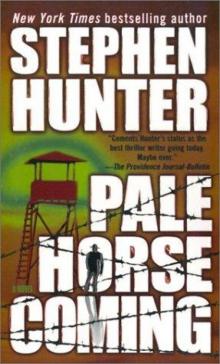 Pale Horse Coming es-2
Pale Horse Coming es-2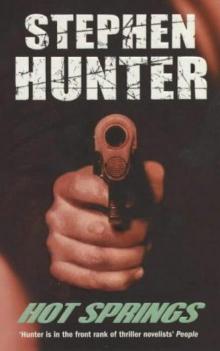 Hot Springs es-1
Hot Springs es-1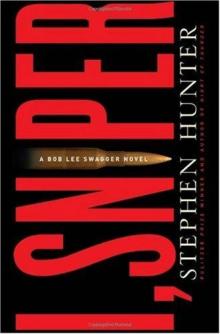 I, Sniper: A Bob Lee Swagger Novel
I, Sniper: A Bob Lee Swagger Novel